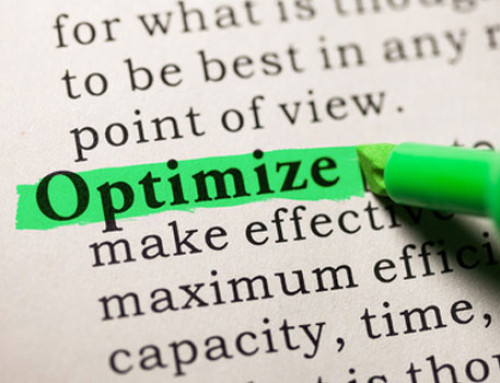The Role of a Community Manager
Community managers fulfill vital roles when it comes to running an HOA. However, one of the top ten reasons that HOA boards given when parting ways with their HOA management company has to do with the relationship (or lack thereof) between themselves and their community manager.
From personality conflicts to being frequently reassigned a community manager by the management company, one of the top complaints that boards cite when switching HOA management companies is that the community manager situation just wasn’t working out for them.
Essentially, community managers carry out the association’s policies, as set by the board, and they manage the daily operations of the community. In this article, we’ll take a closer look at the role of the community manager and discuss ways to improve this partnership.
Purpose of Having a Community Manager
A community manager is essential to the proper management of an HOA. Community managers are responsible for the support of community associations – whether that be a condo association, a homeowners’ association, property owners association, or the like. The purpose of hiring a community manager is to assist with the daily operations of the association while interacting on a regular basis with the board of directors, vendors, and homeowners.
They contribute to the association’s long-term success. In fact, community managers assist in virtually every aspect of the association’s operations, though to what degree may vary depending on the expectations of the board and the needs of the community.
Duties of a Community Manager
Let’s take a look at these essential duties:
- General Administration
From customer service to documenting and maintaining records to reviewing policies and maintaining operations, to collecting assessments and enforcing deed restrictions, community managers cover a wide array of general administration duties for the association. - Communication
A community manager will be in regular contact with the board. From coordinating internal communications among board members to managing point of contact(s), the community manager will compile action items for the board and provide updates on a regular basis. - Financial Management
It’s vital that the community manager understands the association’s financial position and actively monitors the budget. Community managers will verify vendor services and ensure that invoices are paid in a timely manner. They also work to ensure that the association’s assessment collection policy is adhered to. - Tax Preparation
Whether it’s dealing with CPAs or attorneys, the community manager will assist the board in finding qualified and respected professionals who understand the deadlines that must be met for both state and federal report requirements. - Insurance
While community managers should not be responsible for procuring insurance, they may, with board review and approval, assist in seeking viable and competitive bids, know/understand what maximum thresholds are to be met, document the association’s assets, and rely on the association’s documents for obligation and requirements. - Policies
Community managers are responsible for assisting the board with policy matters. By evaluating current policies to ensure that they comply with state law and the association’s governing documents, your community manager can help the board understand if the policies are enforceable, necessary, and best practice. - Common Area Maintenance
The community manager is tasked with overseeing the maintenance aspects of all common areas. This includes ensuring that all common areas are properly maintained, safe, and properly insured. Your community manager will work to complete special projects in a timely manner while proactively informing the board of any anticipated expenses or budget variances while implementing a preventative maintenance schedule for all common areas. - Vendors and Contracts
Your community manager will save you lots of time and money by researching vetted vendors at the best prices, understanding that the lowest price is not always the best deal. In some circumstances, the community manager may be able to partner with neighboring communities to get a better price.
What a Community Manager Should Not Do
While community managers are a great help to the board, there are certain duties that should not be delegated to them. They are:
- Dismissing late fees, waiving rules, or excusing violations.
- Being asked to perform or complete any duties that specifically belong to the HOA board or any duties outside of their formal/contractual duties.
- Signing checks, failing to stick to the HOA budget, or assessing fines.
- Overseeing annual audits.
- Hiring or firing vendors and obtaining HOA insurance without review and approval of the board.
- Initiating the lien process against any homeowner.
- Getting involved in neighbor-to-neighbor disputes.
By understanding which roles belong specifically to the board and which should be delegated to the community manager, your HOA will run smoothly and relationships will remain positive and productive.
Qualities Good Community Managers Possess
While not exhaustive, the following list provides ten important qualities successful community managers exhibit:
- Leadership skills. Community managers must intuitively know how to respond to different personalities and act as the HOA’s leader. Some homeowners and board members can be opinionated or difficult to deal with from time to time, and a good community manager will always handle these situations with tact and professionalism while still keeping the best interests of the association in mind.
- Effective and timely communication. A good community manager is diplomatic, responsive, and approachable. Because it is their duty to disseminate information to board members, vendors, and homeowners, it’s essential that a community manager is an effective communicator. This includes the ability to speak in an articulate and professional manner.
- They serve as an advocate for the association. Again, community managers should always look to serve the best interest of the community. This entails being well-versed in the daily workings of the association, as well as being knowledgeable and up to date with state and federal laws and the association’s governing documents.
- They are responsive. Community managers should be organized and efficient. It’s important that they be able to respond in a timely manner to any questions or concerns that arise within the community.
- Ability to multi-task. Faced with many challenges and tasks, community managers must be able to juggle multiple responsibilities (and often, multiple portfolios) at any given time. They must be able to handle stress, unpredictable situations, run meetings, and be willing to learn from their mistakes.
- Decisiveness. The community manager must be able to make informed decisions after researching an issue.
- They’re honest and fair. Good community managers treat all members fairly and refrain from playing favorites. They enforce rules with consistency and fairness in accordance with the HOA’s governing documents. They also build trust and form relationships within the community by exhibiting honesty and following through with promises.
- They promote community. A good community manager will seek ways to provide everyone (even those shy homeowners) opportunities to get involved. By promoting community events and encouraging friendly interactions, a great community manager will seek to develop strong relationships between homeowners and the board.
- They keep apprised of HOA finances. Because trust is critical when handling other peoples’ money, a community manager must be transparent and forthcoming about the HOA’s financial condition. It’s important to keep residents informed when it comes to the financial health of their association.
- They take time to recharge and find balance. Community managers handle multiple tasks throughout each workday and the stress can sometimes mount up. In fact, you might be surprised at just how stressful their jobs can be! Mental, emotional, and physical health needs to be tended to from time to time. A well-rested, clear-headed community manager is much more effective than one who is barely surviving. By taking breaks and recharging, your community manager will actually boost productivity.
Finding the Right Fit
HOA management companies provide management services to associations while community managers are typically assigned a certain portfolio of communities to manage. This means that the community manager becomes your contact person for various management tasks related to HOA operations in support of the board.
When looking for a community manager, finding the right fit means finding someone who contributes significantly to the value of the community, understands the association’s goals and is knowledgeable about what it takes to successfully run an HOA on a day-to-day basis.
To find the right community manager for your HOA, the board needs to be forthcoming about your collective strengths and weaknesses. You must carefully reflect on what it is that your community needs and what the board needs the most support with. For example, does your board need a community manager who is relaxed and more focused on building community spirit, or is it more necessary to have a community manager who believes in strictly adhering to the rules?
To identify the right candidate, keep the following in mind:
- The most experienced community manager is not necessarily the best community manager for your association.
- Partner with your management company and be upfront about the board’s expectations and needs. If you do this, your management company can pair you with a community manager that is most likely to be a successful partner.
- Set clear expectations and provide timelines to the management company. When screening candidates, be sure to voice any questions or concerns with the management company to be addressed prior to placement.
- Communication is the key to success in any relationship, so be sure to openly communicate with the management company and your new community manager at all times. How you interact with your community manager will determine the ultimate outcome of the partnership!
Support for the Community Manager
Your community manager works hard to help the board achieve the goals of the community. You can support them by showing your appreciation, encouraging positive interactions between all members, and providing open and honest communication regarding expectations. Remember, your community manager is an experienced professional who partners with the board to make the association the best that it can be!
The relationship between the board and the community manager is vital to the success of the association. By working together productively, you can create an unstoppable collaboration!
Related: Do you want to be a Better HOA Board Member? We can help! Check out our webinars. ![]()






